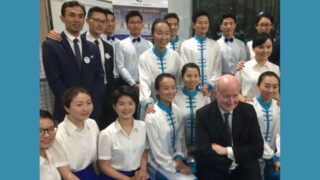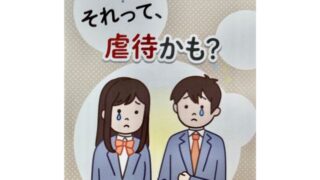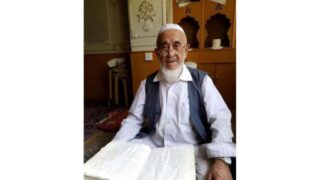After the former Prime Minister was killed, Unification Church members receive death threats and are bullied at work and in schools.
by Massimo Introvigne
Article 4 of 7. Read article 1, article 2, and article 3.


If you ever received a death threat (I did) you know it is not fun. At first, you dismiss it as just a bad joke but then a still small voice keeps telling you that the world is full of crazy guys and some of them may be dangerous. Every time you hear a suspicious noise at night, in a corner of your mind you wonder whether the crazy guy is finally coming to get you.
This is the experience of some members of the Unification Church/Family Federation in Japan after former Prime Minister Shinzo Abe was assassinated. His assassin is a man who claims that the excessive donations she made to the Unification Church had ruined his mother twenty years ago, and he intended to punish Abe for having attended via video one event, and sent a message to another, of an organization connected with that Church.
Rather than blaming the perpetrator, and perhaps the well-publicized anti-Unification-Church campaigns that might have excited his weak mind, certain Japanese lawyers and media put the victims on trial. They suggested that “cults” such as the Unification Church should be publicly shamed and punished.
In 2011, I served as the Representative of the Organization for Security and Cooperation in Europe (OSCE, of which the United States and Canada are also participating states) for combating racism, xenophobia, and religious intolerance and discrimination. An important part of my portfolio were hate crimes and hate speech.


Not all those who listen to hate speech against religious minorities commit hate crimes, but some do. In Japan, the hate disseminated against the Unification Church lead to death threats against some of its members.
Articles by Japanese media reporting these incidents left to readers the possibility of posting comments. Some commented by adding more death threats. I hope the Japanese police is paying attention to these posts. We now know that Abe’s assassin started his career as a Unification Church hater by posting insults and threats on social media. We all know how the story ended.
Hate speech is, by its very nature, pervasive. Once it is disseminated through the media or the Internet, its effects can no longer be controlled. There are reports of members of the Unification Church in Japan insulted in the streets, ridiculed in the workplace, bullied in schools, even divorced by their spouses. We can only hope and pray that verbal violence will not escalate to physical violence and perhaps murder. Fatal effects of hate speech are not only a thing of the past. Every month, if not every week, Ahmadis are killed in Pakistan. They are members of a religious movement targeted by hate speech in the media and in sermons by preachers of the majority religion.
Hate speech also prepares the ground for discrimination, i.e., for laws targeting members of a minority group and making them second class citizens. It is already happening with the Unification Church in Japan. While donations to religions are tax-exempt, as it happens in every democratic country of the world, it is argued that donations to the Unification Church are not given to a “real” religion but to a fraudulent “cult,” and should be regarded as consideration paid for sales and taxed as such.


The Japanese are not inventing anything. France, who has a bizarre official policy against “cults,” now hailed as a model by some in Japan, once argued that donations to the Jehovah’s Witnesses and other groups it included in a list of “cults” were not gifts but payments for goods or services and should be taxed. The European Court of Human Rights did not buy it. It ruled that the redefinition of donations as payments for sales was just a tool used to discriminate against religious groups the French authorities did not like and labeled as “cults.” France had to give back the taxes the Jehovah’s Witnesses and two other religious movements had already paid, plus legal fees and damages.
Japan is not part of the European Convention of Human Rights but has signed the Universal Declaration of Human Rights, which has parallel provisions in its article 18. In an official interpretation called General Comment no. 22, issued in 1993, the United Nations stated that “Article 18 is not limited in its application to traditional religions.” The United Nations warned against “any tendency to discriminate against any religion or belief for any reason, including the fact that they are newly established, or represent religious minorities that may be the subject of hostility on the part of a predominant religious community.”
The way to prevent further media intolerance and administrative discrimination against members of the Unification Church in Japan is to build a large coalition. It should be obvious to everybody that giving to the authorities the power to decide which religions are good and which are bad or “cults,” and tax the donations to the latter by declaring they are not real donations, threatens all religious groups. It convert the institutions of allegedly secular states into new inquisitions.
Some Japanese media object that the Unification Church is not a religion with “normal” beliefs but makes bizarre claims for its founder, Reverend Moon. It is thus time for me to come out. I also believe in a religion making grandiose claims for its founder. Its name is Christianity. As a Christian, I believe that a Jew executed two thousand years ago as a criminal is still alive today. I also believe that he was born of a virgin mother and resurrected the dead. Surely, this is more than any claim members of the Unification Church may make for Reverend Moon.









